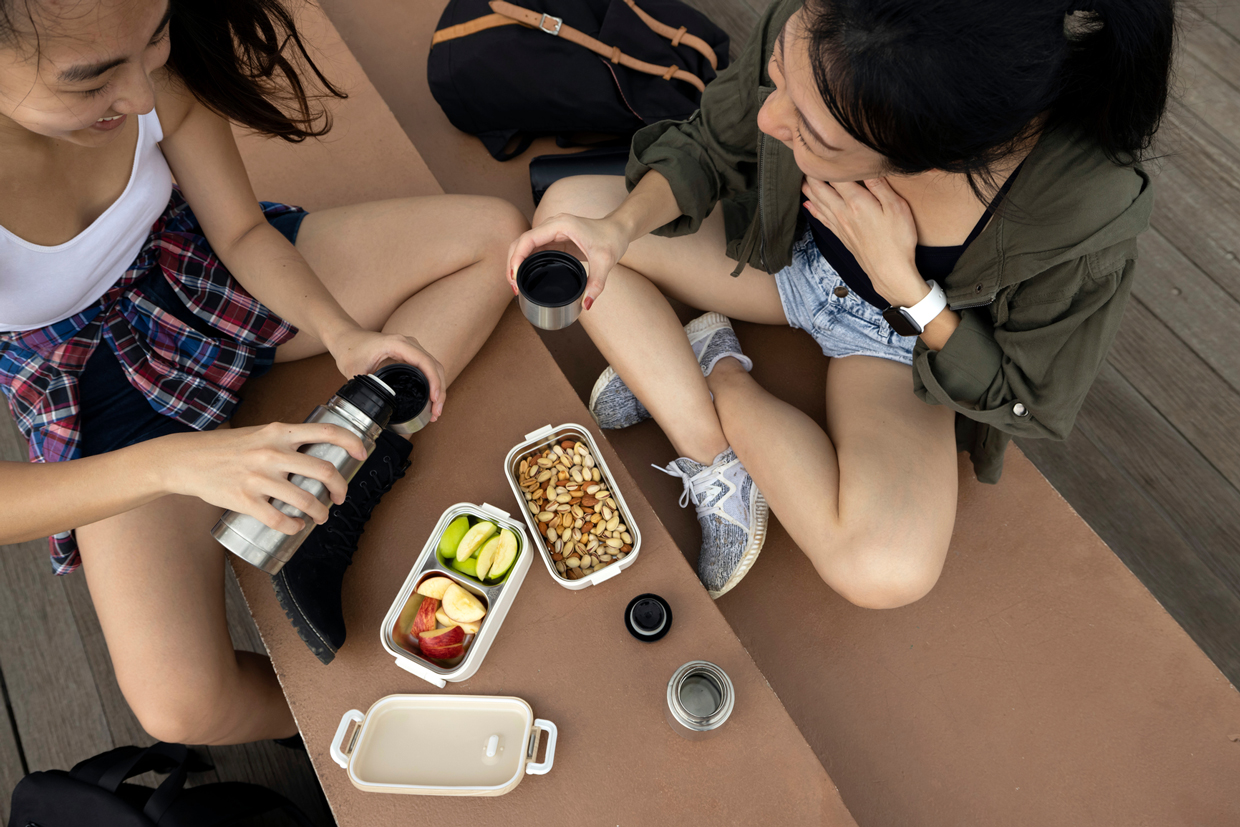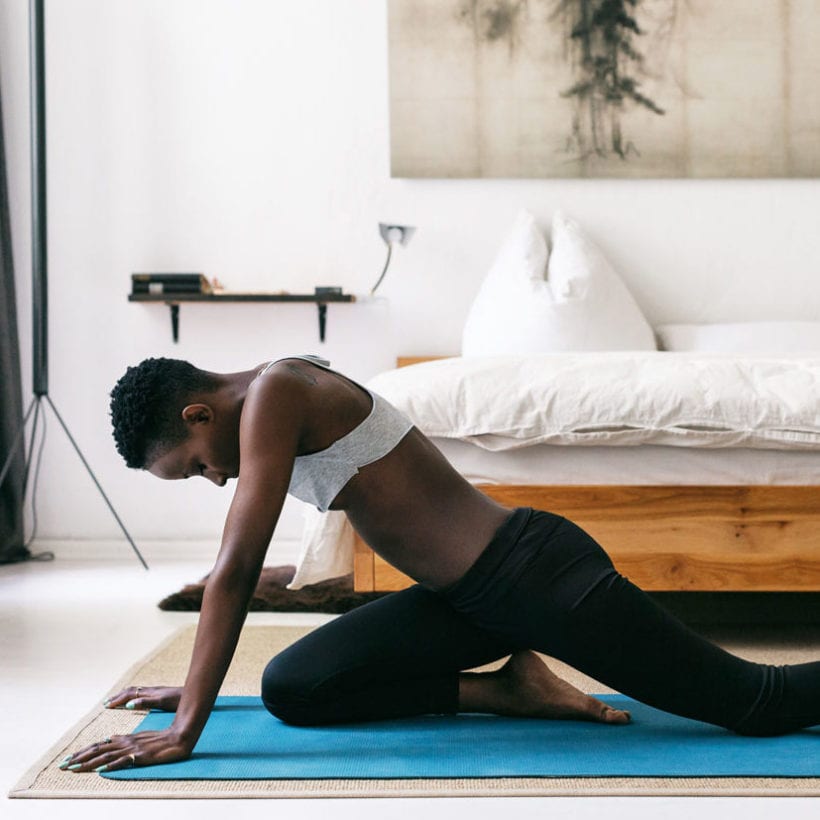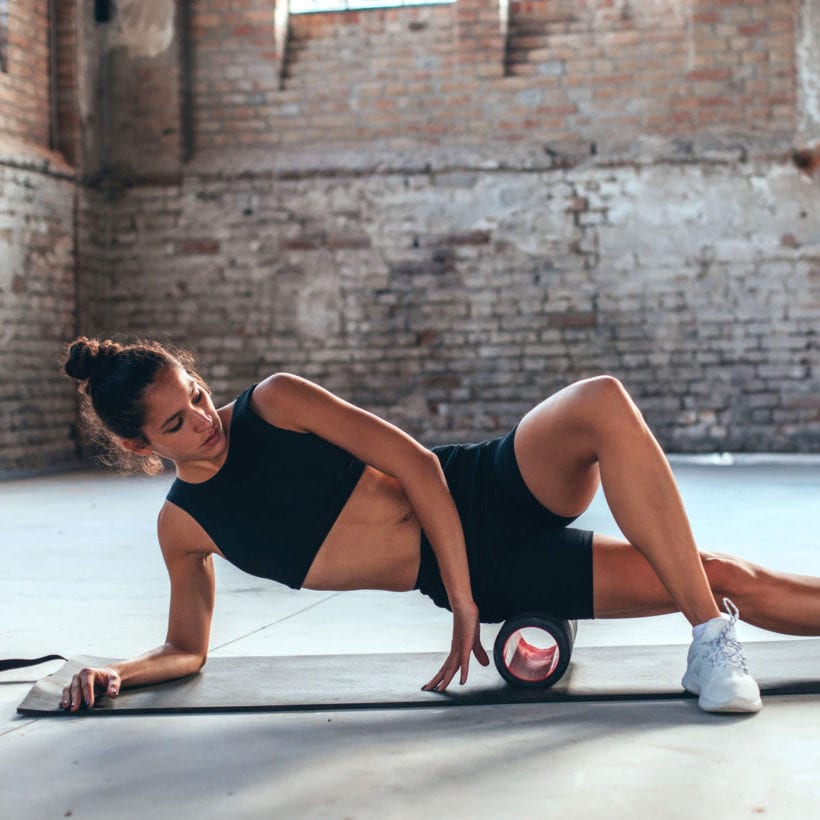Take a trip to any grocery store, and you are likely to see a well-stocked snack aisle. A good proportion of them is marketed as healthy or suitable for post-exercise. According to Grand View Research, Inc, snacking is big business, with the global healthy snacks market size expected to reach $32.88 billion by 2025.
However, how essential is it to snack after exercise, and if so, what should we be eating? We spoke to two experts to get the low down.
Why your body needs fuel after exercise
When we exercise, our bodies work hard and need to be replenished. Post-workout, whatever the activity, the first port of call is water. “The most important aspect is hydration,” nutrition coach Anne Iarchy noted. When you work out, you sweat and lose fluids, and it’s important to replace these. Water also helps the body get rid of waste products in the joints and muscles which in turn aids recovery. The American Council on Exercise recommends drinking 17 to 20 ounces of water in the three hours before a workout and another 8 in the 30 minutes after.
Food after exercising is also important. “After exercise, the body needs to repair, refuel and replenish. If you don’t eat, you may find that you feel low in energy, your body doesn’t recover well and you may negatively impact your fitness goals,” nutritional therapist Wilma MacDonald explained.
There are a few different things your body needs post-exercise. “Glycogen stores need to be refilled by eating carbohydrates and muscles need to be repaired by eating protein,” MacDonald highlighted. Having a balance of the two is important. “This will keep blood sugar levels balanced which will stop energy crashes and exhaustion,” MacDonald added.
Electrolytes (made up of sodium and potassium) that are lost via sweating also need to be replenished. You can get electrolytes from both vegetables and proteins like chicken, tofu, or yogurt.
What you eat and how much of it you need comes down to how intense your workout was. “If you’ve done a longer cardio workout, the focus would be on hydration and electrolytes. If you’ve done a resistance workout, the focus would be on hydration and protein to help rebuild the muscle fibers that have had micro-tears. Through the process of micro-tears and rebuilding, you build stronger muscles,” Iarchy explained.

Get the timing right
It’s debatable how soon after exercise you should eat, partly due to the fact it’s dependent on the length of training and its intensity. It also depends on when you ate beforehand and how hungry you felt. “Glycogen stores ideally need to be topped up after 45 minutes of exercise so if the session was longer than 45 minutes, I’d suggest eating within 30 minutes of finishing,” MacDonald advises.
Prioritize meals over the snacking
Ideally, time your workout so it comes before a meal. For example, a pre-breakfast workout or an exercise class after work and before dinner. “It’s important to eat after you exercise as you want to eat within a short time frame to balance blood sugar levels and start the repair,” MacDonald told us.
Of course, sometimes this isn’t possible. If you can’t eat straight after your workout, a snack to keep you going and replenish the body is a smart idea. If you leave eating for a long time after exercising, you’re likely to end up feeling tired. Similarly, your body won’t repair as efficiently.

What to snack on
Snacks should ideally be high in protein. Exercise breaks down muscle protein, so replacing this after a workout is important. Protein-rich foods give your
muscles amino acids to repair existing muscles and build new ones. Avoid snacks that are simply sugar or carbohydrate-based. Wherever possible, make your snacks, so you can avoid hidden sugars or unwanted ingredients.
Post-workout snack ideas
Here, MacDonald shares her top post-workout snacks to eat on the go:
- Banana or apple and nut butter.
- Homemade chocolate protein balls using ingredients like oats, nuts/seeds, nut butter, tahini, cacao powder, chickpeas, and a sweetener like maple or date syrup.
- Smoothies made with coconut water, a base of green veg, frozen fruit and an added protein from a good quality protein powder or a tablespoon of chickpeas gives the body what it needs post-exercise.
- Oatcakes with cottage cheese, tomato, or hummus.
- Yogurt with fruit, granola, and a drizzle of tahini.
- Dates stuffed with nut butter.
We only recommend products we have independently researched, tested, and loved. If you purchase a product found through our links, Sunday Edit may earn an affiliate commission.







